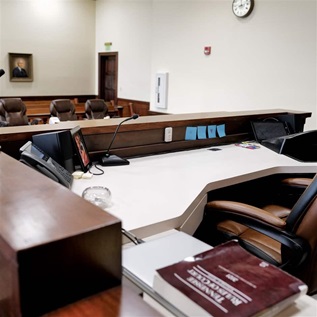Poll Finds Philadelphians Optimistic About City Despite Their Own Economic Woes
Despite taking a beating from the economy in the past year, Philadelphians maintain an optimistic view of their city and its prospects, a view that may stem in part from a reduced concern about crime.
By a margin of 41 to 34 percent, Philadelphians say the city is headed in the “right direction” and not off “on the wrong track.” That's down slightly from a year ago, when the margin was 46 to 37 percent, but up substantially from April 2009 when the score was 34 to 47 percent. More than six in 10 Philadelphians rate the city as a “good” or “excellent” place to live, the same number as a year ago.
These findings come from a wide-ranging poll of 1,602 city residents commissioned by The Pew Charitable Trusts' Philadelphia Research Initiative and conducted by Abt SRBI Public Affairs, working with Rutgers Professor Cliff Zukin.
As part of this annual benchmark survey and one conducted in January 2009, Philadelphians were asked to name the “one or two things they like least” about living in the city. This year, crime remains far and away the most frequent response. But there was a 10 percentage-point drop in the number of people mentioning crime, from 45 to 35 percent. The same trend was apparent when people who said they wanted to move out of the city were asked why. Within that group, there was a 12 percentage-point drop in the crime mentions this year, from 36 to 24 percent. These results reflect what has been happening on the streets; the number of major crimes in the city has declined significantly in the past year.
The poll shows that the overall mood of the city is not as rosy as it was last January, when the excitement over the upcoming inauguration of President Obama may have influenced results; but it is more positive than it was last April during the city's budget crisis.
“This generally positive outlook is somewhat surprising, considering how hard Philadelphians have been hit by the economy, especially when it comes to jobs,” said Larry Eichel, project director of the Philadelphia Research Initiative.
In the poll, 49 percent of those questioned said there was a time during the past 12 months when they or someone in their household had been without a job and looking for work. There were other indications in the survey about the pervasiveness of the jobs shortage. Last month, when the poll was taken, 21 percent of all respondents described themselves as “unemployed and looking for work,” up from 15 percent a year ago.
In the poll, the problem of unemployment comes across as almost uniform citywide; there is little variation in the answers from one neighborhood to another. There are, however, stark differences along racial and ethnic lines. Thirty-one percent of Hispanics describe themselves as unemployed and looking for work, compared to 25 percent of blacks and 14 percent of whites.
Several of the questions asked about the impact of the economy were taken from recent national surveys, so that Philadelphians' answers could be compared to those of Americans as a whole. Generally, the responses locally are very similar to the national ones.
Only 33 percent of residents rate their personal financial situation as “good” or “excellent,” compared to 63 percent who judge it to be only “fair” or “poor.” In addition, two out of three Philadelphians are “very” or “somewhat” concerned about maintaining their standard of living while one out of three is not. As with employment, Hispanics appear to be the most worried about their own finances, followed by blacks and then whites.
The economy has affected Philadelphians' lives in several specific ways. For instance, 55 percent have cut back on planned spending for vacation travel, and 41 percent have delayed or canceled plans to make a major household purchase such as a computer or appliance.
How the study was conducted
The Philadelphia Research Initiative survey was conducted by telephone between January 8 and 19 among a citywide random sample of 1,602 city residents, ages 18 and older. Interviews were conducted with 1,302 landline users and 300 cell phone users to reach a broad representative sample of Philadelphians.
The final sample was weighted to reflect the demographic breakdown of the city. The margin of error for the entire sample is approximately +/- 2.5 percentage points. The margin of error is higher for subgroups. Surveys are subject to other error sources as well, including sampling coverage error, recording error and respondent error.
Abt SRBI Public Affairs designed the survey and conducted all interviewing, working with Cliff Zukin, veteran pollster and professor of political science and public policy at Rutgers University.
About The Philadelphia Research Initiative
The Pew Charitable Trusts' Philadelphia Research Initiative provides timely, impartial research and analysis on key issues facing Philadelphia for the benefit of the city's citizens and leaders. Pew is a nonprofit organization that applies a rigorous, analytical approach to improve public policy, inform the public and stimulate civic life. www.pewtrusts.org/philaresearch











